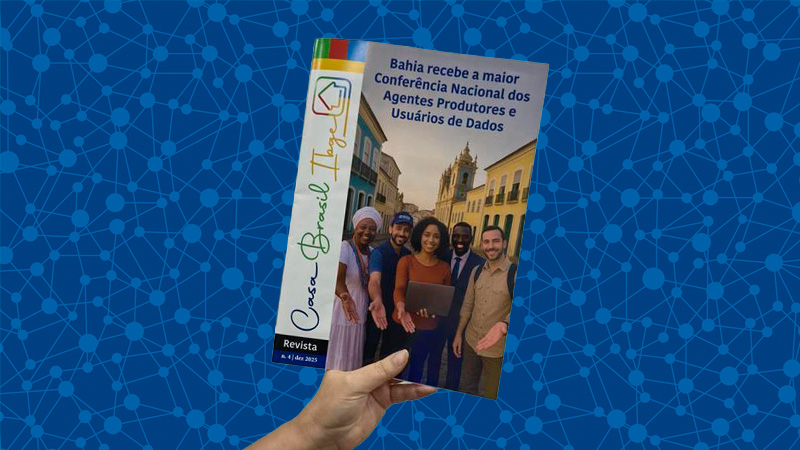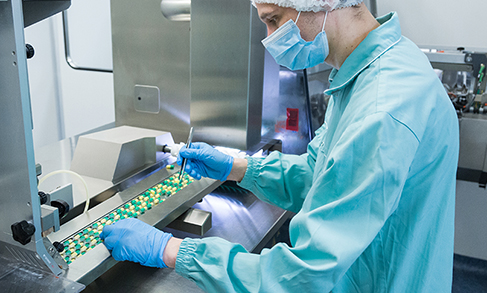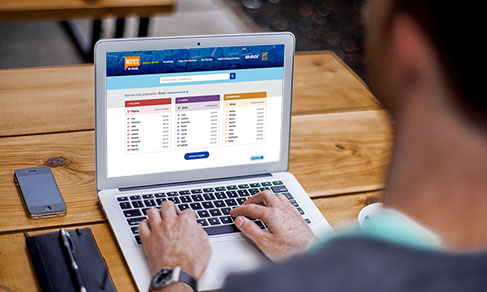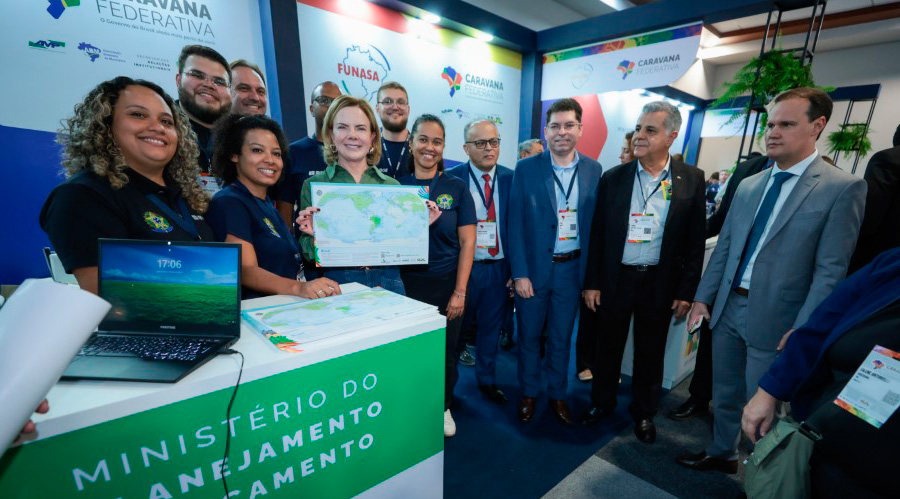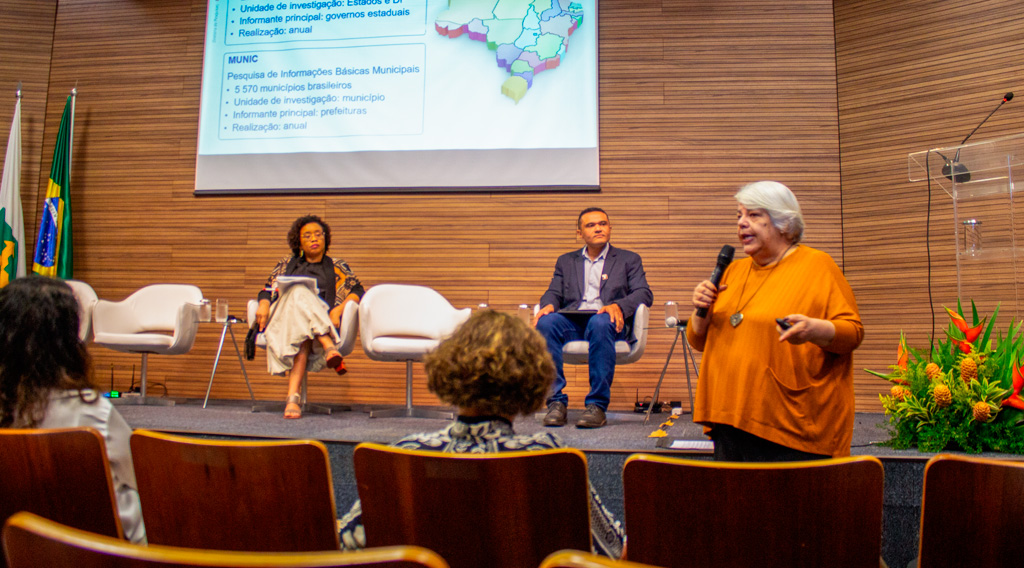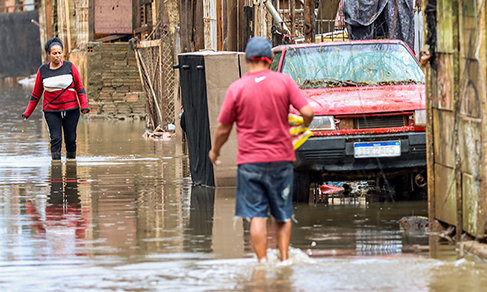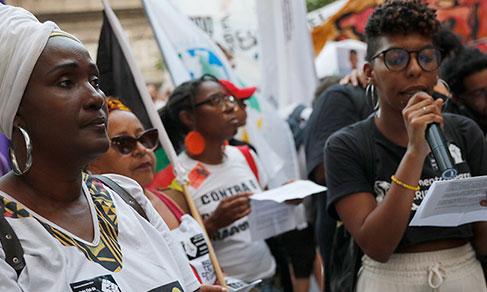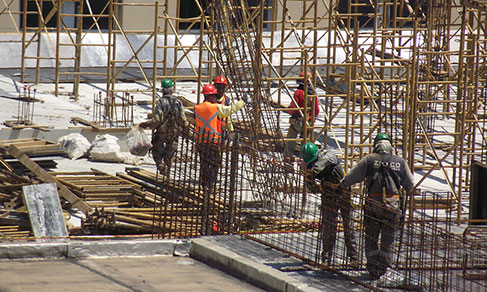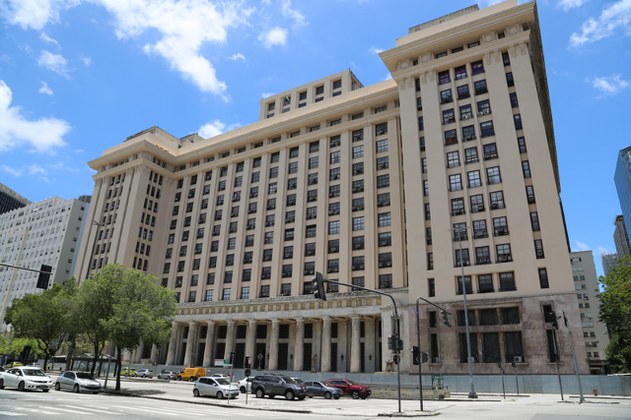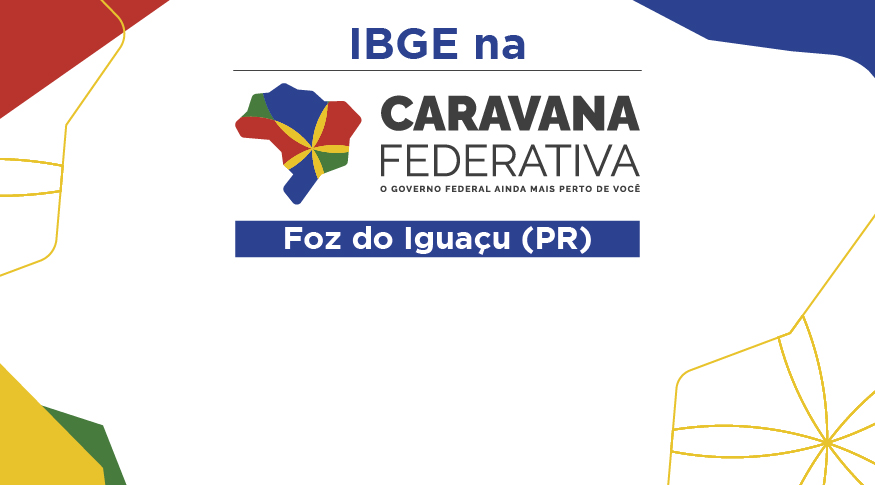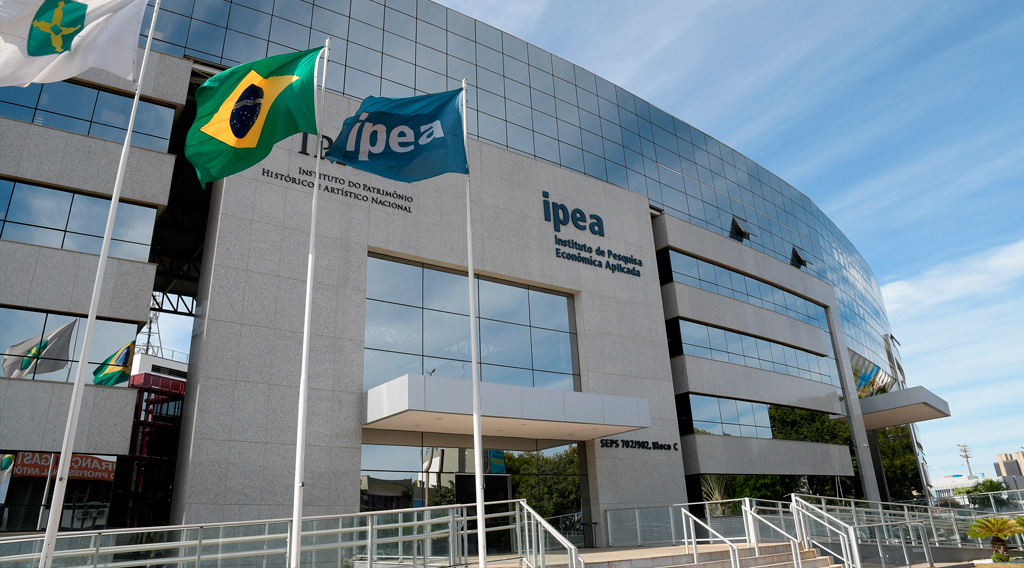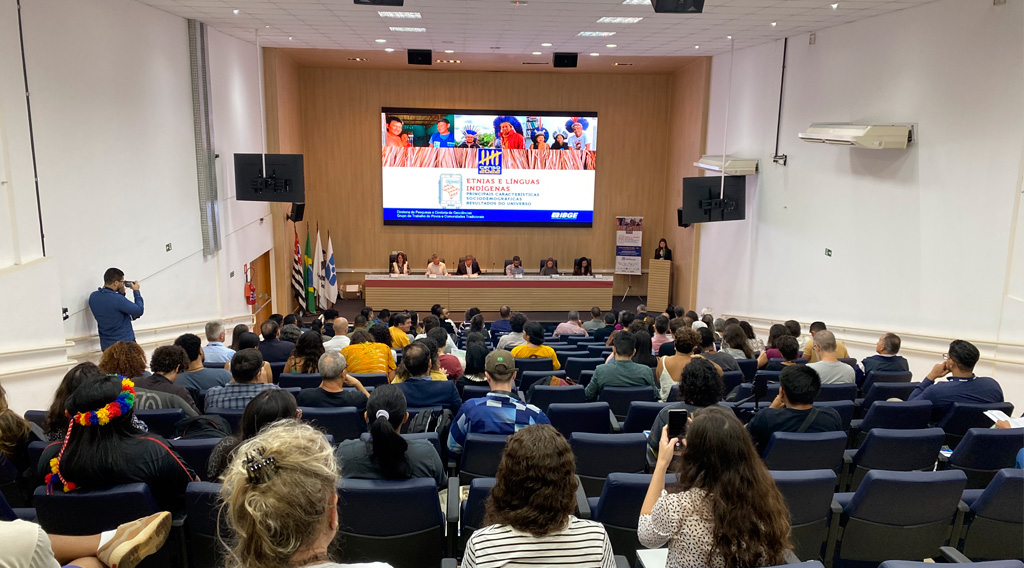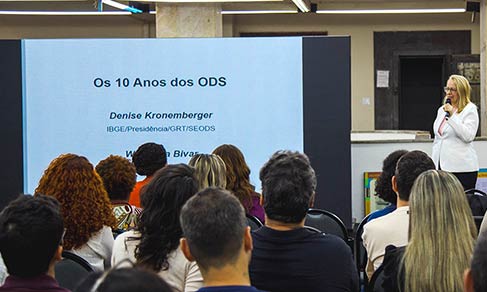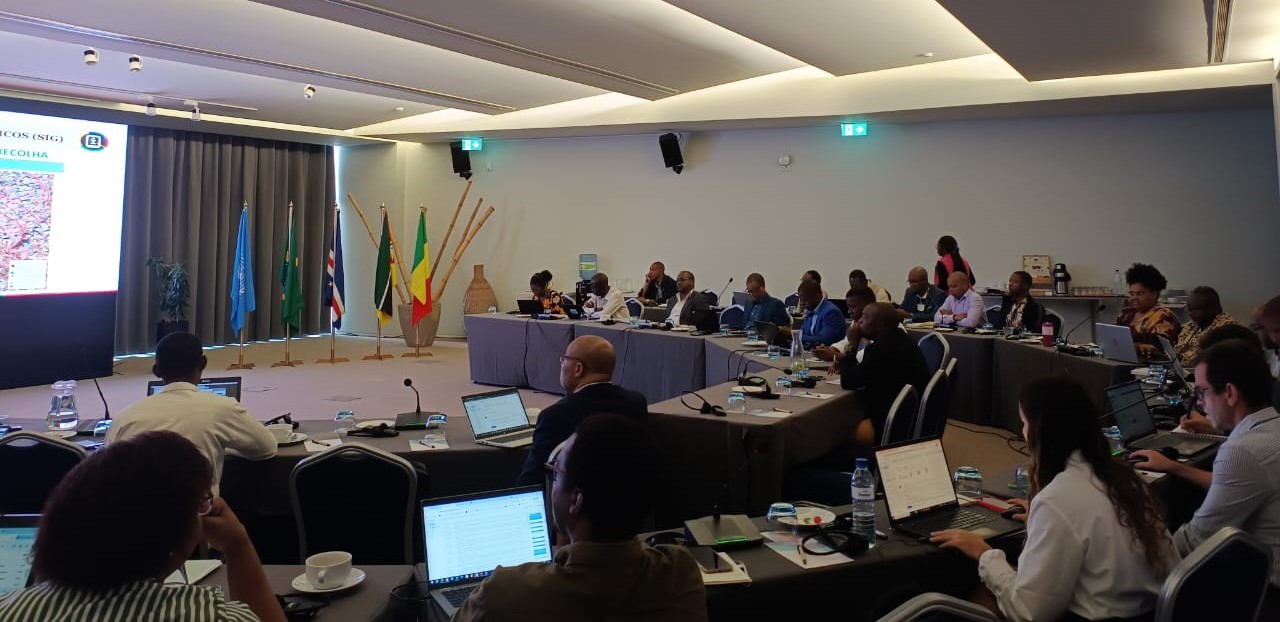Casa Brasil IBGE SUDENE - Recife
Casa Brasil IBGE Sudene will integrate data and boost regional development
November 25, 2024 05h10 PM | Last Updated: November 26, 2024 01h13 AM
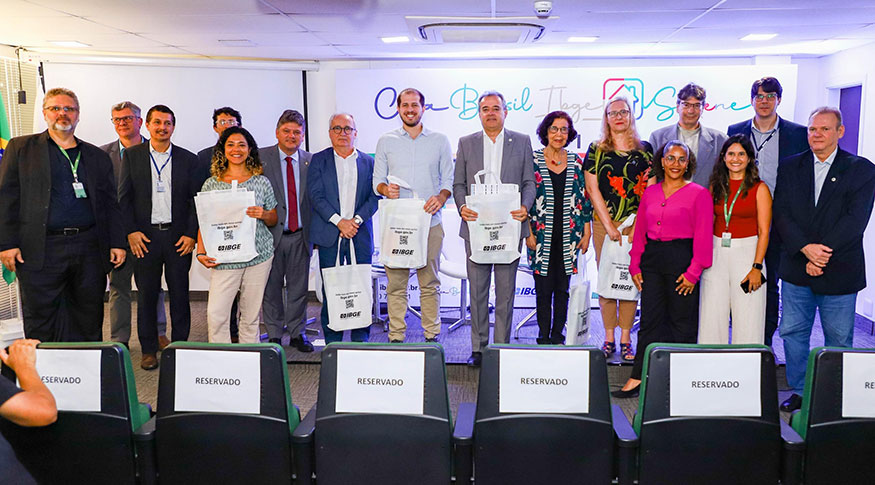
Recife (PE) – The Brazilian Institute of geography and Statistics (IBGE) and the Superintendence for the Development of the Northeast (Sudene) opened, on Monday, 25, in partnership, Casa Brasil IBGE Sudene. The event was held at the headquarters of the Superintendence, in the neighborhood of Boa Viagem, in Recife (PE). It is the first extension of Casa Brasil, which brings together a digital and a physical collection of regional data that will give access to information, platforms, software and systems, thus contributing to more effective management.

The result of a partnership between the Superintendence for the Development of the Northeast and the Brazilian Institute of Geography and Statistics, the facility is expected to make easier and faster the analyses of the social and economic scenario for the Major Region. Casa Brazil IBGE is located at the headquarters of Sudene and has an assortment of physical and digital data, an interactive information stand, a computer for research and a number of products from the IBGE archive, which encompasses a trillion variables and 1.5 billion data in its platforms.
The event was attended by the president of the IBGE, Marcio Pochmann, the superintendent of Sudene, Danilo Cabral, the mayor of Recife, João Campos, the mayor of Camaragibe and representative of the Association of Municipalities of Pernambuco (AMUPE), Nadegi Queiroz, the federal representative Pedro Campos, the director of the Center for Strategic Technologies of the Northeast (CETENE), Marcelo Carneiro, the president of Joaquim Nabuco Foundation, Márcia Aguiar, the representative of the Ministry of Planning and Budget (MPO), Dorotea Blos, the state representative Sileno Guedes, who attended the event on behalf of the Legislative Assembly of Pernambuco, and mediated by Daniel Castro, coordinator-general of the Center for Information Documentation and dissemination and Coordination of Social Communication (CDDI/CCS).
The president of the IBGE, Márcio Pochmann, spoke briefly about the background contributions of the Institute to identify problems in the country and indicate solutions, for example, causing Brazil to “leave a very primitive agrarian society that was predominant up to the 1970’s and reach, in less than 50 years, changed significantly and became an urban and industrial society”.
According to Pochmann, the partnership established in the opening of this Monday “is a landmark for IBGE, for Sudene and for the Brazilian State. It is a compliment for the almost 90 years of the Institute and all its history of surveys, in which development needs to have a place.”
Casa Brasil IBGE Sudene will allow researchers, regional public managers, entrepreneurs seeking evaluations about the market and the population in general, access to surveys, databases, programs and projects by the IBGE. It can become an information hub for regional development, said the superintendent of Sudene, Danilo Cabral.
“Our challenge, based on a decision by president Lula, is to bring the capacity to think, formulate ideas and plan the Brazilian state back into the public agenda, into the agenda of society, in fact,” Cabral remarked, also highlighting that “we need to think not only about the next day, or the next four years, but think of a but consider the four years ahead, have a long-term plan for Brazil.”

The mayor of Recife, João Campos, highlighted the importance of this partnership with Sudene and the IBGE, and highlighted “the capacity of cooperation, of bringing together different institutions that have the same vocation to work in an integrated way ad find a common solution for people’s routine.” The manager also said that “we need to have data, information, figures, metrics so that we will be able to make the right decisions.

According to the President of Joaquim Nabuco Foundation, Márcia Aguiar, the partnership and the inauguration of a Casa Brasil IBGE in the Northeast can be helpful for the memory, culture and strategy of formulation of data, and it can help Brazil in its strategy of formulation of data, being even helpful to Brazil in geopolitical terms, being “a model initiative” that strengthens the institutions and the country.

Marcelo Carneiro, director of CETENE, stated that the partnership can improve surveys in the segments of education, especially with the use of Artificial Intelligence. “We expect to participate, take these data and use artificial intelligence with special monitoring in education. And we hope to offer opportunities to society in the Northeast, with institutions, as well as public policies as part of this experience.”
Dorotea Blos, representative of the Ministry of Planning and Budget, sees this partnership with the framework of the Ministry in favor of the formulation of public policies in the Northeast region and in Brazil. “We know innovation and knowledge are essential for the process of development,” said Blos.
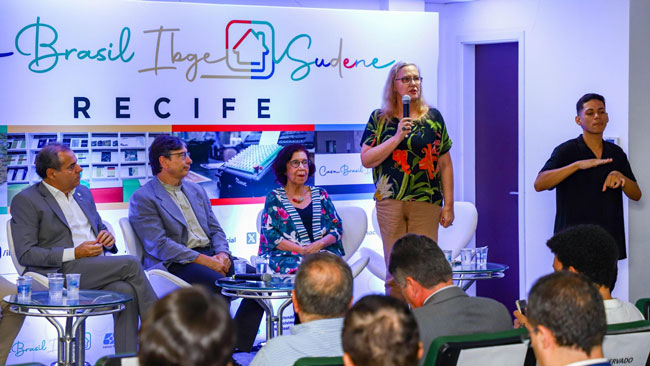
The mayor of Camaragibe, Nadegi Queiroz, who spoke on behalf of the Association of Municipalities of Pernambuco (Amupe), also emphasized the importance of a “very rich database” to be “used as a support to decisions made by municipalities.
The main objectives of Casa Brasil IBGE Sudene are to make available information based on important territory aspects for Sudene, such as area of coverage of the Autarchy, semi-arid land and the Caatinga; provide training to civil servants in areas of interest of Sudene, according to the availability of courses within the National School of Statistical Sciences (ENCE); elaborate and adapt summary indicators for the area covered by Sudene and the semi arid land as territories of analyses, such as the Gross Domestic Product (GDP) and Value of Municipal Agricultural Production (PAM); create rankings by municipalities, states and subregions.
It will be possible to work in partnership in the construction of Observatório Nordeste (Observatory for the Northeast) and the update of SIGMapas (Georeferenced System for the Regional Development of the Northeast); to help monitor the Regional Development Plan for the Northeast (PRDNE) and the Pluriannual Regional Plan (PPA) based on monitoring indicators related to their axes. Onsite and remote activities are also expected, including courses, workshops and graduate courses, besides the promotion of national and international events.

The start of training aimed at municipal planning is scheduled for March 2025, with modules focused on the challenges faced by municipal managers faced by municipal managers, especially recently elected ones. There will be four months of remote training, with 10 modules, besides a face-to-face round, in Recife. The topic “Climate Change and Regional Development” will be a priority and cooperative work is expected to survey and make available data on desertification and the semi-arid land.
The opening event had a special program, including lectures on data analysis, regional development and successful practices of a similar nature in public management, and was streamed live by Digital IBGE (ibge.gov.br) and the Institute’s and Sudene’s social media channels.
Watch the opening ceremony of Casa Brasil IBGE SUDENE in the video below:



